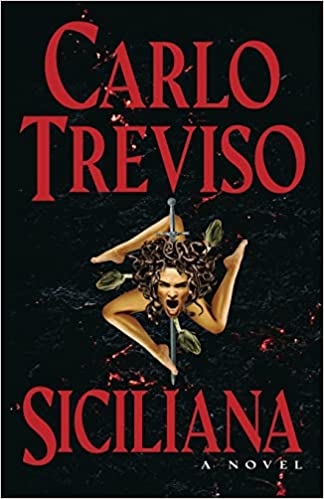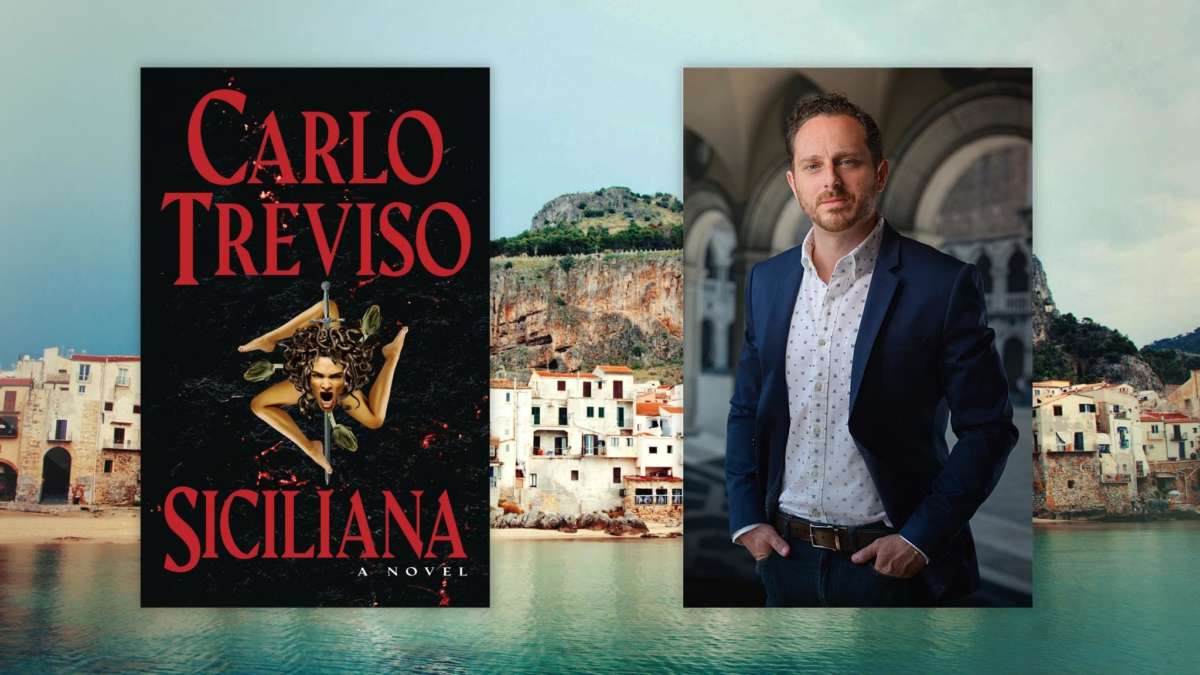Siciliana by Carlo Treviso
What's It About?
On March 30th, 1282, as the bells of Palermo tolled for Vespers, a woman crying "Death to the Angevins!" led a peoples' uprising against the garrison occupying the city. Within six weeks, rebels slayed more than three thousand Angevin soldiers across the island. The turbulent events of 1282 became known as the Sicilian Vespers.No, this isn’t an excerpt of the House of the Dragon script or a Brandon Sanderson fantasy. This passage describes the very real event that rocked the island of Sicily nearly seven and a half centuries ago — an event that serves as the inspiration for Carlo Treviso’s rousing historical thriller Siciliana.
Spanning back thirteen years before that uprising, Treviso’s story shows how the seeds of revolution were sown throughout the entire nation, right up to that fateful Easter service. With rich descriptions and a cinematic flair, the novel tells a moving story of family, liberty and resilience in the face of injustice. It’s evident throughout the writing that the author cares deeply for Sicily’s history and culture — after all, it’s his own family’s history and culture as well.
Here’s what Carlo Treviso has to say about the inspiration behind Siciliana, his favorite scenes to write and where to keep an eye on him for news on future projects.
Q: Growing up as a Sicilian American, were there any particular experiences or teachings that influenced Siciliana?
A: I’m the first-generation son of a Sicilian immigrant family. Growing up, if I mentioned Sicily or my Sicilian heritage to anyone unfamiliar with its past or culture, the typical response included some use of the notorious M word. “Oh, like the Mafia?” More often than not, Sicilians are portrayed and perceived in popular culture in a negative context — hustlers, gangsters, grifters. I felt that my Sicilian heritage deserves better.
Mythologist Joseph Campbell once said: “If you want to change the world, change the story.” As a lifelong aficionado of fiction and cinema, I believe in the transformative power of storytelling and determined that the only way to confront and change these negative perceptions was to change the narrative. In writing this novel, I set out to paint a portrait of a tempestuous time when the island of Sicily was still considered its own kingdom — once a grandiose and evocative realm of forbidden knights, forgotten fortresses and fallen kings. By opening a window into this dramatic era, I hope to shine a new light on Sicily’s engrossing past and resilient culture, and celebrate my Sicilian heritage in a way that I wanted to see in popular culture growing up.
Perhaps one day, when a Sicilian daughter or Sicilian son tells someone about their family’s heritage, the response they receive will not be “Oh, like the Mafia?” but rather “Oh, like Siciliana!”
Q: Your novel totally immerses the reader into the world of 13th century Sicily. What was the research process like for this book?
A: My path to writing Siciliana became especially purposeful after my first trip to Sicily in the summer of 2014. The fact that surprised me the most about Sicily was that it was conquered by every civilization in the Mediterranean. Greek, Roman, Arab, French, Spanish — all impressing their mark upon the island’s architecture, cuisine and language.
While on that same trip, a tour guide briefly mentioned a centuries-old people’s uprising called the Sicilian Vespers. Intrigued by this dark and unknown piece of history, I conducted my own research into the story. I pored over historical texts and online articles about the event, and tapped into my personal experiences walking the actual ancient streets and locations where the book’s plot unfolds.
The novel actually features real UNESCO heritage sites as key locations in the book, such as Palermo Cathedral, the Palazzo Dei Normanni, Mount Etna and the Taormina Greek Theater. This incorporation of real locations that you can visit to this day was a creative decision to help bring awareness to Sicily’s fascinating history and culture.
Q: What inspired you to tell a tale set during the War of the Sicilian Vespers?
A: The Sicilian Vespers uprising was a world-shaping event that altered the face of the Mediterranean as we know it. It was a brief and relatively unknown moment in history when the Sicilian people became united under what you might call a single national identity. Legend says that the iconic Sicilian Flag (featuring the image of Medusa) was created during this turbulent time.
Thus, I decided this period would be the perfect narrative backdrop to tell a broader story about Sicily and Sicilian culture. The novel isn’t only about a courageous woman trying to save the nation she believes in. Siciliana is an energized novel about a resilient and vibrant culture too often misrepresented in popular entertainment. It is Sicily and Sicilian culture itself which sets the stage, backdrops the major characters and locations and forever binds their fates. While the story’s central heroes are people, the island and culture also becomes a living, breathing character in itself.
Q: What was your favorite part of the story to write?
A: I enjoyed finding ways to infuse elements of Sicilian culture, cuisine, and language into the overarching plot of the novel.
For example, at the heart of the book is a term called “cosca.” Cosca is Sicilian for an artichoke. An artichoke, as you may know, has layered blade-like leaves that cover it’s heart. The artichoke, then, becomes a metaphor for the Sicilian family unit. Back in medieval times, Sicilians wielded short swords called stiletto blades. And with the blade of the stiletto is how they protected their family. Thus, when all of the Sicilians came together with their blades, that created the cosca, or artichoke, of the family. On top of this broader revolution story, you get this cultural contemplation of what it means to be cosca … a Sicilian family.
Siciliana then becomes a story within a story. Outwardly, the novel cries: fight for the revolution. Inwardly, the hidden treasure is: protect the culture.
Q: What do you wish for readers to take away from the book?
A: With Siciliana, I hope readers come away with a new appreciation for Sicilian vibrant past and resilient culture. I hope to turn negative and misunderstood perceptions of Sicily and Sicilian culture into shining appreciation and reverence. Moving away from the stereotypical mafia don and casino mobster depictions and into the vibrant and beguiling world of forbidden knights, forgotten fortresses, and fallen kings of medieval Sicily.
After the launch of the novel, I found that my pen was indeed mightier than any sword. The book’s success brought many lovers and appreciators of Sicily knocking on my door. Tour guides, chefs, museum organizations, and cultural festival coordinators have all personally reached out to both praise the book and request personal engagements such as book-signings and author talks.
Q: What’s next for you?
A: I’m currently working on my next novel which will be an original historical thriller. I’m not quite ready to share details at this time. Be sure to follow me on social media for the latest news about Siciliana and my upcoming works:
Facebook | Instagram | Twitter | www.thesiciliana.com | www.carlotreviso.com
About Carlo Treviso:
Carlo Treviso grew up in Milwaukee, Wisconsin and graduated from Columbia College Chicago with a degree in film directing. Traversing the worlds of Hollywood and advertising, Treviso has written and produced commercial broadcast campaigns for well-known brands all over the world. The son of a Sicilian immigrant, Treviso enjoys bringing his passion and appreciation for Sicily to his readers. He is a proud advocate and supporter of conservation organizations UNESCO, LIFE ConRaSi and World Wildlife Fund — all of which work to protect the beauty and grandeur of Sicily’s engrossing past, resilient culture and vibrant biodiversity. Treviso resides in Chicago, Illinois.





